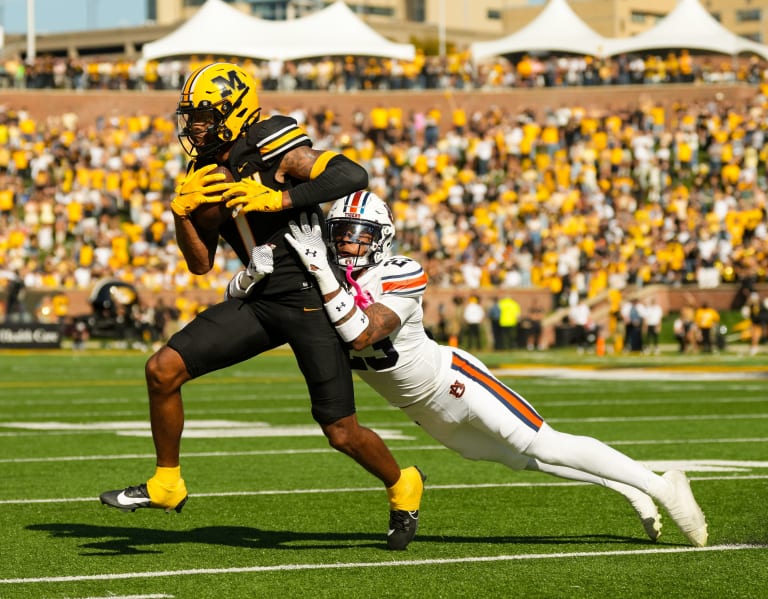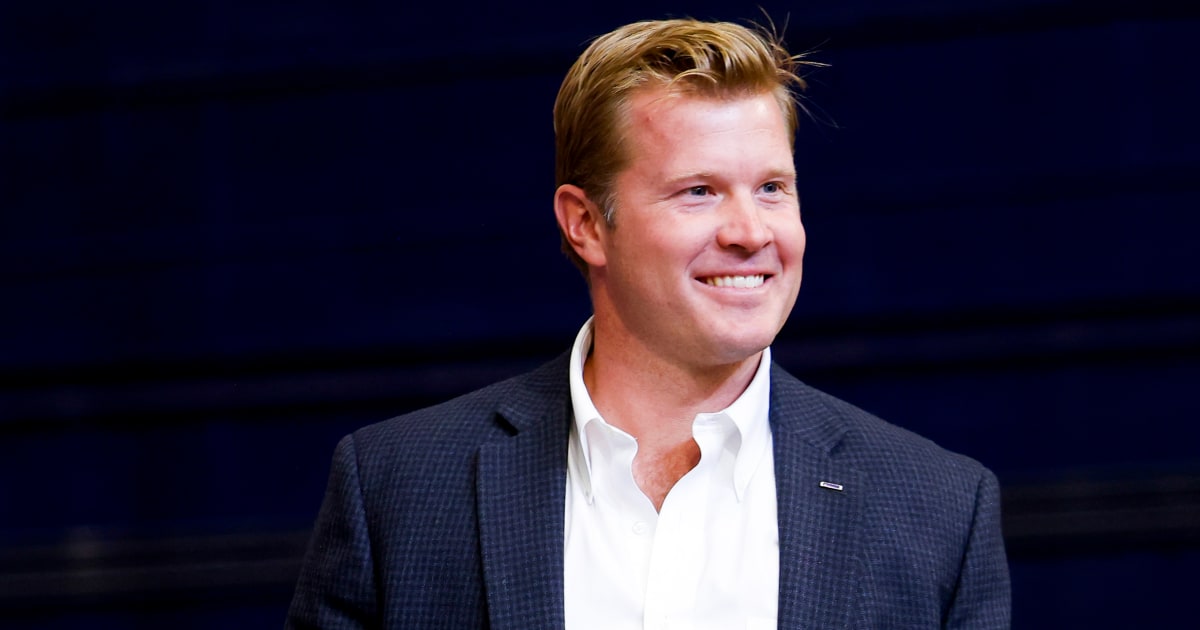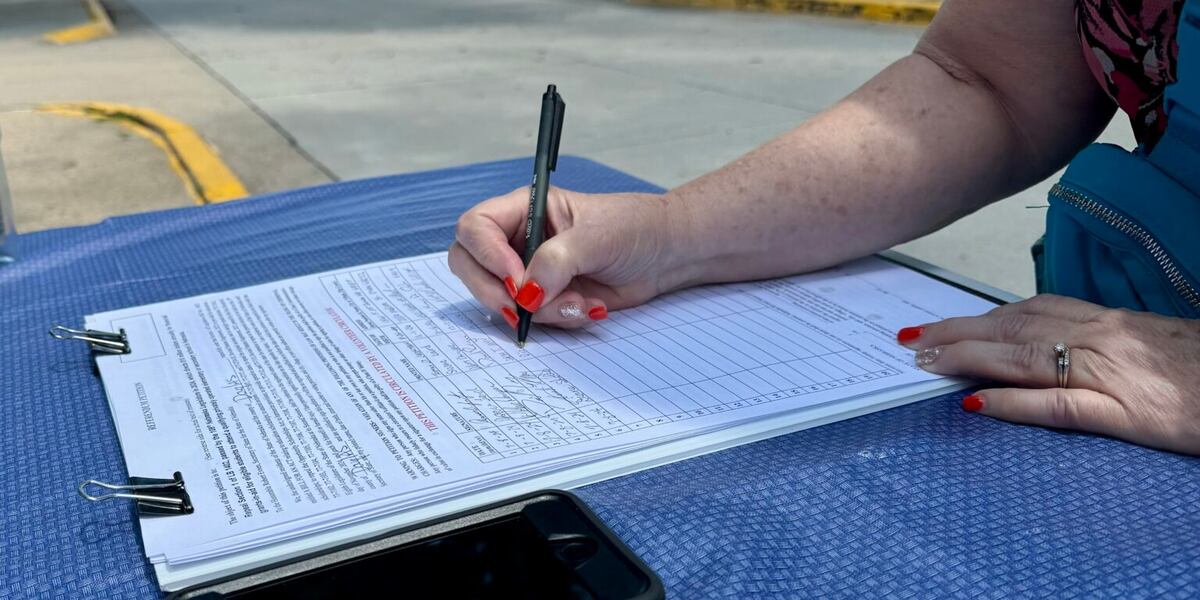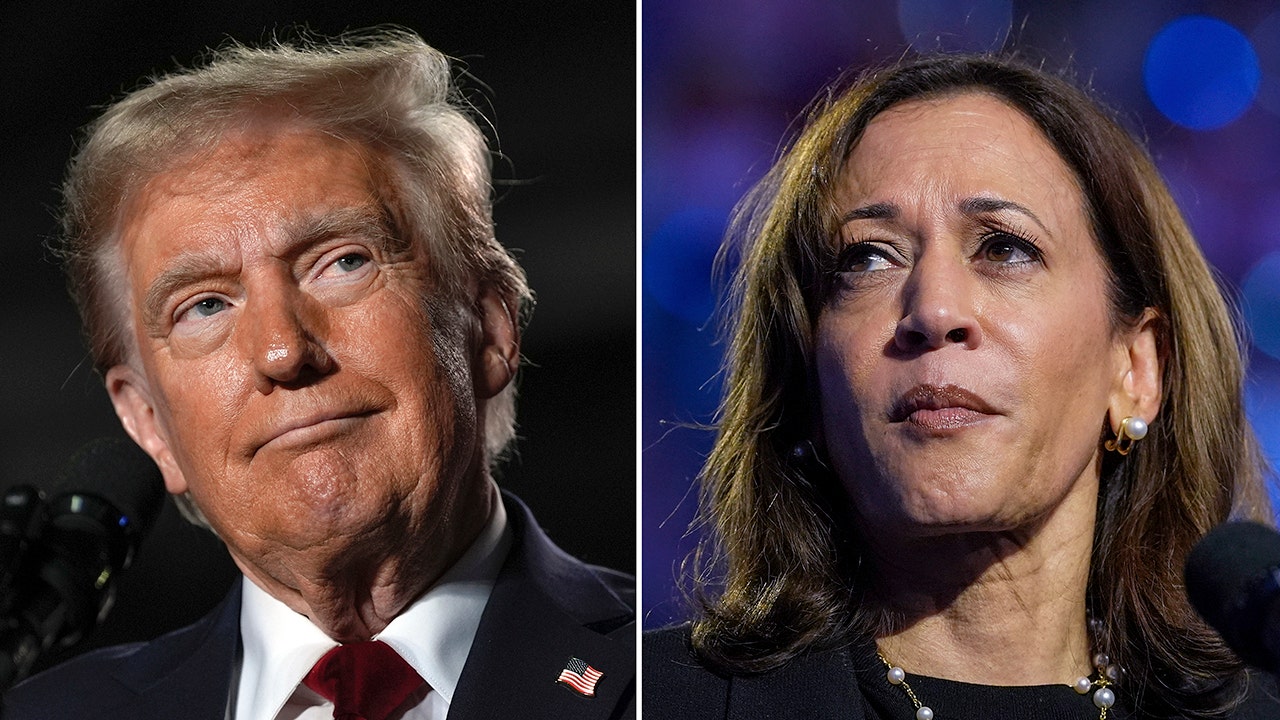World
ISIS remains global threat a decade after declaring caliphate, US military official says

Ari Fleischer: Democrats have a crisis on their hands
Fox News contributor Ari Fleischer on liberal media expressing concern over Biden’s performance at the CNN Presidential Debate and says Democrats are shocked because they haven’t seen previous concerning behavior from Biden.
- A decade after declaring its caliphate, ISIS no longer controls any land, has lost many leaders, and is mostly out of the news.
- The group continues to recruit members and conduct deadly attacks globally, including recent operations in Iran and Russia.
- ISIS sleeper cells in Syria and Iraq continue to attack government forces and U.S.-backed Syrian fighters.
A decade after the Islamic State militant group declared its caliphate in large parts of Iraq and Syria, the extremists no longer control any land, have lost many prominent leaders and are mostly out of the world news headlines.
Still, the group continues to recruit members and claim responsibility for deadly attacks around the world, including lethal operations in Iran and Russia earlier this year that left scores dead. Its sleeper cells in Syria and Iraq still carry out attacks against government forces in both countries as well as U.S.-backed Syrian fighters, at a time when Iraq’s government is negotiating with Washington over a possible withdrawal of U.S. troops.
The group that once attracted tens of thousands of fighters and supporters from around the world to come to Syria and Iraq, and at its peak ruled an area half the size of the United Kingdom was notorious for its brutality. It beheaded civilians, slaughtered 1,700 captured Iraqi soldiers in a short period, and enslaved and raped thousands of women from the Yazidi community, one of Iraq’s oldest religious minorities.
AUTHORITIES NAB 8 SUSPECTED TERRORISTS WITH TIES TO ISIS IN MULTI-CITY STING OPERATION
“Daesh remains a threat to international security,” U.S. Army Maj. Gen. J.B. Vowell, the commanding general of Combined Joint Task Force — Operation Inherent Resolve, said in comments sent to The Associated Press. Daesh is the Arabic acronym for the Islamic State group.
Iraqi Army soldiers celebrate as they hold a flag of the Islamic State group they captured during a military operation to regain control of a village outside Mosul, Iraq, on Nov. 29, 2016. Ten years after the Islamic State group declared its caliphate in large parts of Iraq and Syria, the extremists now control no land, have lost many prominent founding leaders and are mostly away from the world news headlines. (AP Photo/Hadi Mizban, File)
“We maintain our intensity and resolve to combat and destroy any remnants of groups that share Daesh ideology,” Vowell said.
In recent years, the group’s branches have gained strength around the world, mainly in Africa and Afghanistan, but its leadership is believed to be in Syria. The four leaders of the group who have been killed since 2019 were all hunted down in Syria.
In 2013, Abu Bakr al-Baghdadi, then the leader of the Islamic State in Iraq group, which was formed as an offshoot of al-Qaida, distanced himself from the al-Qaida global network and clashed with its branch in Syria, then known as the Nusra Front. The group renamed itself the Islamic State in Iraq and the Levant and launched a military campaign during which it captured large parts of Syria and Iraq.
TERROR FEARS MOUNT AFTER ARRESTS OF BORDER CROSSERS LINKED TO ISIS: ‘WE’RE HEADED FOR ANOTHER 9/11’
In early June 2014, the group captured the northern Iraqi city of Mosul, Iraq’s second largest, as the Iraqi army collapsed. Later that month, it opened the border between areas it controlled in Syria and Iraq.
On June 29, 2014, al-Baghdadi appeared as a black-robed figure to deliver a sermon from the pulpit of Mosul’s Great Mosque of al-Nuri in which he declared a caliphate and urged Muslims around the world to swear allegiance to it and obey him as its leader. Since then, the group has identified itself as the Islamic State.
“Al-Baghdadi’s sermon — an extension of the extremist ideology of Abu Musab al-Zarqawi — continue to inspire ISIS members globally,” said retired U.S. Army officer Myles B. Caggins III, senior nonresident fellow at the New Lines Institute and former spokesman for the Global Coalition to Defeat ISIS. He was referring to Abu Musab al-Zarqawi, al-Qaida’s leader in Iraq who was killed in a U.S. strike in 2006.
From the self-declared caliphate, the group planned deadly attacks around the world and carried out brutal killings, including the beheading of Western journalists, setting a Jordanian pilot on fire while locked inside a cage days after his fighter jet was shot down, and drowning opponents in pools after locking them in giant metal cages.
A coalition of more than 80 countries, led by the United States, was formed to fight IS and a decade , the alliance continues to carry out raids against the militants’ hideouts in Syria and Iraq.

Iraqi Army soldiers secure streets in a village recently liberated from Islamic State militants outside Mosul, Iraq, on Dec. 1, 2016. (AP Photo/Hadi Mizban, File)
The war against IS officially ended in March 2019, when U.S.-backed and Kurdish-led fighters of the Syrian Democratic Forces captured the eastern Syrian town of Baghouz, which was the last sliver of land the extremists controlled.
Before the loss of Baghouz, IS was defeated in Iraq in July 2017, when Iraqi forces captured the northern city of Mosul. Three months later, IS suffered a major blow when SDF captured the Syrian northern city of Raqqa, which was the group’s de-facto capital.
The United Nations says the group still has between 5,000 and 7,000 fighters in Syria and Iraq.
Still, at least in Iraq, government and military officials have asserted that the group is too weak to stage a comeback.
“It is not possible for (IS) to claim a caliphate once again. They don’t have the command or control capabilities to do so,” Iraqi army Maj. Gen. Tahseen al-Khafaji told the AP at the headquarters of the Joint Special Operations Command in Baghdad, where Iraqi officers and officials from the U.S.-led coalition supervise operations against the extremists.
BIDEN’S ‘PRE-9/11 POSTURE’ TO BLAME FOR ISIS MIGRANTS SLIPPING THROUGH CRACKS: EXPERT
The command, which was formed to lead operations against the group starting weeks after the caliphate was declared, remains active.
Al-Khafaji said that IS is now made up of sleeper cells in caves and the desert in remote areas, as Iraqi security forces keep them on the run. During the first five months of the year, he said, Iraqi forces conducted 35 airstrikes against IS and killed 51 of its members.
Also at the headquarters, Sabah al-Noman of the Iraqi Counter Terrorism Service said that having lost its hold on Iraq, the militant group is focused mostly on Africa, especially the Sahel region, to try to get a foothold there.
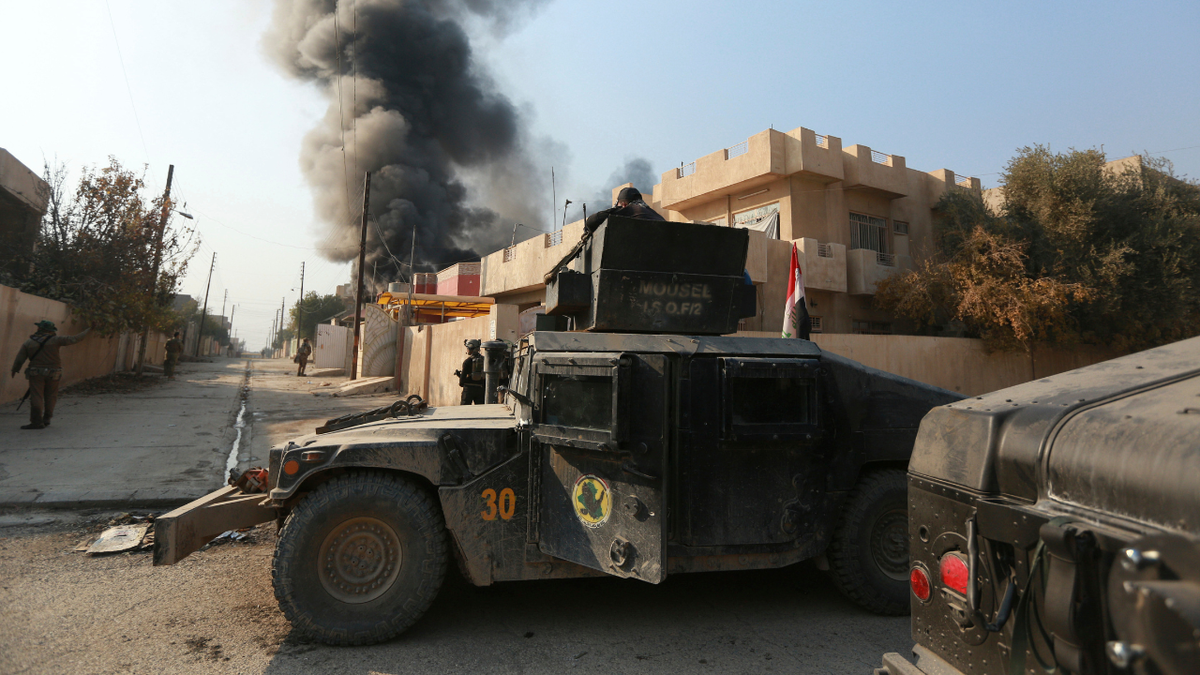
Smoke rises as Iraq’s elite counterterrorism forces fight against Islamic State militants to regain control of al-Bakr neighborhood in Mosul, Iraq, on Dec. 12, 2016. (AP Photo/Hadi Mizban, File)
“It is not possible for them to take control of a village, let alone an Iraqi city,” he said. He added that the U.S.-led coalition continues to carry out reconnaissance and surveillance in order to provide Iraqi forces with intelligence, and the security forces “deal with this information directly.”
Although IS appears to be under control in Iraq, it has killed dozens of government forces and SDF fighters over the past several months in Syria.
“Daesh terrorist cells continue in their terrorist operations,” SDF spokesman Siamand Ali said. “They are present on the ground and are working at levels higher than those of previous years.”
In northeast Syria, SDF fighters guard around 10,000 captured IS fighters in around two dozen detention facilities — including 2,000 foreigners whose home countries have refused to repatriate them.
The SDF also oversees about 33,000 family members of suspected IS fighters, mostly women and children in the heavily-guarded al-Hol camp, which is seen as a breeding center for future extremists.
Their worst attack since the group’s defeat occurred in January 2022, when the extremists attacked the Gweiran Prison, or al-Sinaa — a Kurdish-run facility in Syria’s northeast holding thousands of IS militants. The attack led to 10 days of fighting between SDF fighters and IS militants that left nearly 500 dead on both sides, before the SDF brought the situation under control.
Caggins said that the U.S.-led coalition’s “military advice and assistance” to Iraq Security Forces, Kurdish Iraqi fighters and the SDF “is essential to maintain dominance against ISIS remnants as well as securing more than 10,000 ISIS detainees at makeshift jails and camps in Syria.”

World
Video: Reaching Rural Voters in North Carolina After Hurricane Helene

new video loaded: Reaching Rural Voters in North Carolina After Hurricane Helene
transcript
transcript
Reaching Rural Voters in North Carolina After Hurricane Helene
Ahead of Election Day, canvassers knocked on voters’ doors in Ashe County in storm-ravaged Western North Carolina.
-
“What we know is that North Carolina is a dead heat right now. So the margin of victory is going to come from rural voters. You’ve got to get to where people are at, and this is rugged mountain turf. So sometimes the bridge is out to access the home, and you’ve got to go down and across the creek and up the other side to find out if the voter’s there. Sometimes, we’ve hit addresses where the house is gone and we’re finding people in tents.” “Hello, hello. Hi, my name is Bailey and this is Ibi. We’re from Down Home North Carolina. How did you, how did you do in the storm? It looks kind of hard around here.” Yeah, the water was up past these trees when it — and you see what happened to the car.” “And have you made plans to vote? Are you going to vote?” “I was actually able to go last Monday, so I did. Yeah, I was able to get in.” “Did your housemates also vote already as well?” “So they still need too. So trust me, I’m pushing on them. And my son, who’s in Greensboro, to make sure he gets in.” “Ashe County, it wouldn’t be where you would traditionally expect political efforts to be active at this phase in the campaign because it is so heavily a Republican county. And yet, we know every vote counts the same. So we’re really motivated to make sure that we end up with representatives all up and down who represent working-class people and are going to do what’s required to help rebuild Western North Carolina.”
Recent episodes in 2024 Elections
World
Biden-Harris admin treatment of Ukraine, Israel wars 'differs substantially,' experts say
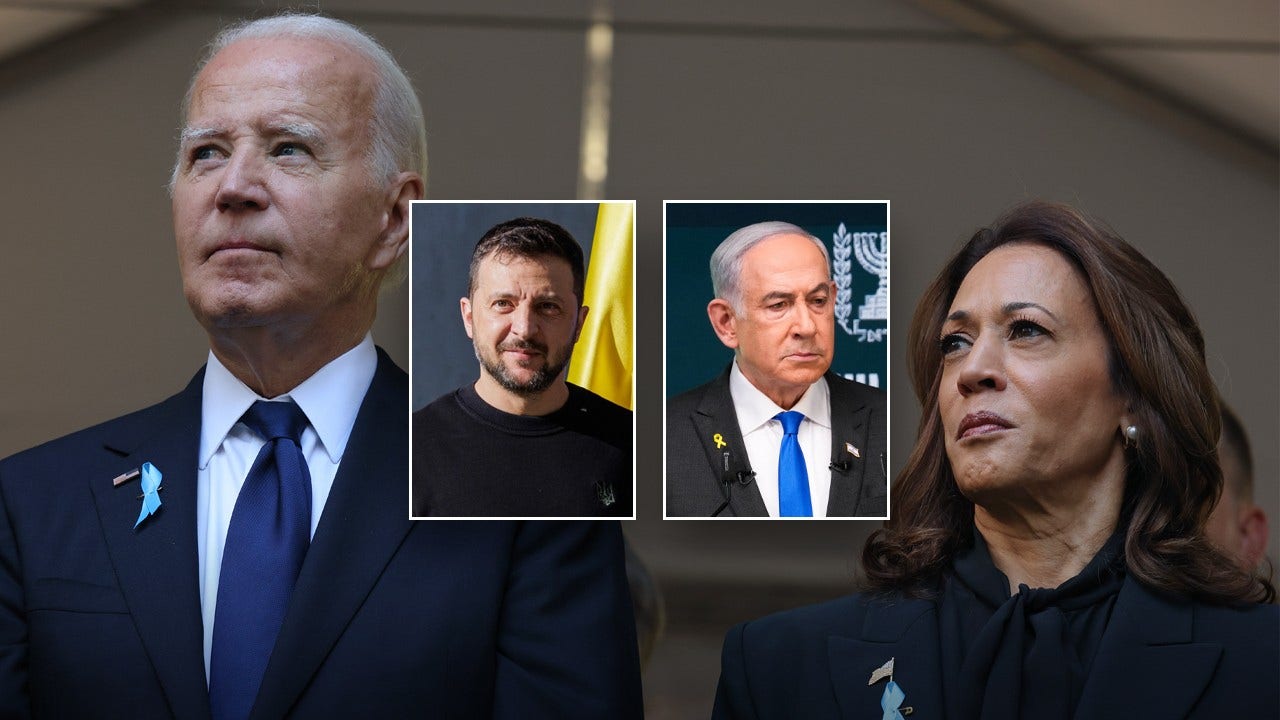
JERUSALEM—The devastating wars launched by Russia’s authoritarian leader Vladimir Putin against Ukraine and the Hamas terrorist movement against Israel are raising uncomfortable questions for President Biden and Vice President Kamala Harris about their alleged lack of resolve toward an Israeli victory over the Islamic Republic of Iran-backed proxies, Hamas and Hezbollah.
Fox News Digital turned to experts on the Mideast and Russia for their reflections on the different war strategies embraced by Biden and Harris with respect to Ukraine and Israel.
“The strategic behavior of the United States toward Ukraine and Israel differs substantially,” David Wurmser, a former senior adviser for nonproliferation and Middle East strategy for former Vice President Dick Cheney, told Fox News Digital.
“There has never been any indication that the United States affords Russia any legitimacy to its reasons for invasion. While a cease-fire in place may be sought, there is no indulgence of Russia’s ostensible grievances or demands,” Wurmser said, adding, “In contrast, regarding the Palestinians, the October 7 attack was blasted as a horror and Israel’s immediate defense was accepted, but the thrust of U.S. policy almost immediately and certainly with ever greater intensity was that a legitimate grievance underlies Palestinian claims and led to these events.”
HAMAS ADMITS ‘PAINFUL, DISTRESSING’ LOSSES AFTER ISRAELI VIDEO SHOWS TERRORIST SINWAR MOMENTS BEFORE HIS DEATH
President Biden and Vice President Kamala Harris walk to an event on gun violence in the East Room of the White House in Washington, D.C., on Sept. 26, 2024. (SAUL LOEB/AFP via Getty Images)
While many Mideast experts see the effort to establish a Palestinian state as a failed project, the Biden-Harris administration has embraced Palestinian demands and sought to push Israel to accept a two-state solution before the Oct. 7 Hamas invasion and after Hamas massacred nearly 1,200 people in Israel.
The language of Biden and Harris towards Ukraine and Israel also shows a disconnect. In September, after Russian missiles killed more than 50 during an attack on a training facility and hospital, Biden said, “Make no mistake: Russia will not prevail in this war. The people of Ukraine will prevail. And on this tragic day, and every day, the United States stands with them.”
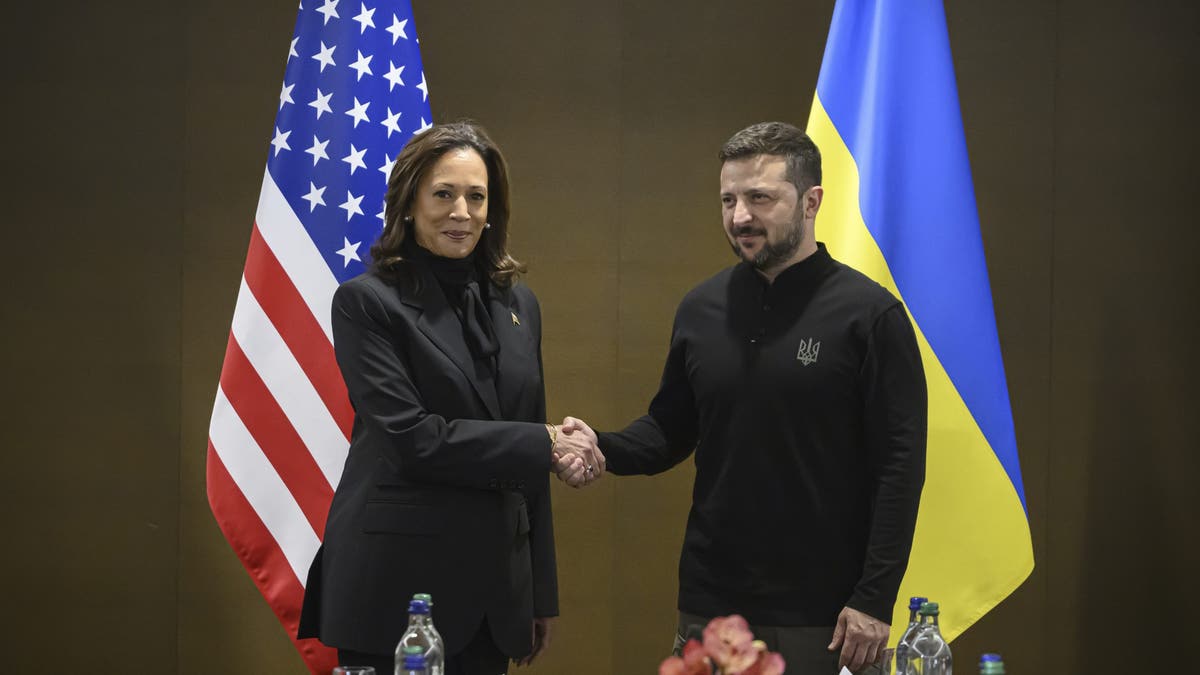
Vice President Kamala Harris shakes hands with Ukrainian President Volodymyr Zelenskyy during the Summit on peace in Ukraine, in Obbürgen near Lucerne, Switzerland, on Saturday, June 15, 2024. (Alessandro della Valle/Keystone via AP)
Terminology that advances victory is largely shunned by Biden and Harris when discussing Israel’s ground wars against Hamas and Hezbollah in Lebanon. Biden and Harris went as far as to threaten Israel with punitive measures if the Jewish state invaded the last stronghold of Hamas in the city of Rafah. Israeli Prime Minister Benjamin Netanyhau called their bluff and defeated Hamas in Rafah, including the elimination of its terrorist leader Yahya Sinwar last month.
French President Emmanuel Macron, German Chancellor Olaf Scholz, U.K. Prime Minister Keir Starmer and Biden announced last month during a discussion of Ukrainian President Volodymyr Zelenskyy’s Victory Plan “their resolve to continue supporting Ukraine in its efforts to secure a just and lasting peace.” In the same statement, the western world leaders stressed “ending the war in Gaza,” a message to Israel that it recoil from its anti-terrorism war.
NETANYAHU SIGNALS TEHRAN’S NUCLEAR PROGRAM COULD BE NEXT TARGET AS IRAN PLANS FUTURE ATTACK

Prime Minister Benjamin Netanyahu conducts a security assessment at the air force HQ at the Kirya Base in Tel Aviv with the Minister of Defense, the Chief of Staff, the head of Mossad and the head of Shin Bet. (Israeli Prime Minister’s office)
Israel Defense Forces have not rooted out all Hamas terrorists in the Gaza Strip and Hamas’ leadership insists on continuing its war to obliterate the Jewish state.
The juxtaposition of U.S. policies and language toward the prosecution of wars in Ukraine and in Gaza and Lebanon has revolved around blunting Israel’s paths to victory and its efforts to re-establish deterrence, argue critics of the Biden-Harris school of thought. Ukraine has not experienced the same offensive war restrictions from Biden and Harris, argue experts.
Wurmser noted that “Ukraine is not facing an incessant attempt from the first days of the Ukraine war of self-defense to stop the war in a way that allows its enemy to consolidate its gains and pocket a victory. Only recently has the United States begun to indicate the preference for, but did not impose material pressure on yet, Ukraine to move toward a cease-fire. Not so with Israel. From the first week of the war, the United States [has tried] to restrain Israel and press it towards a cease-fire.”
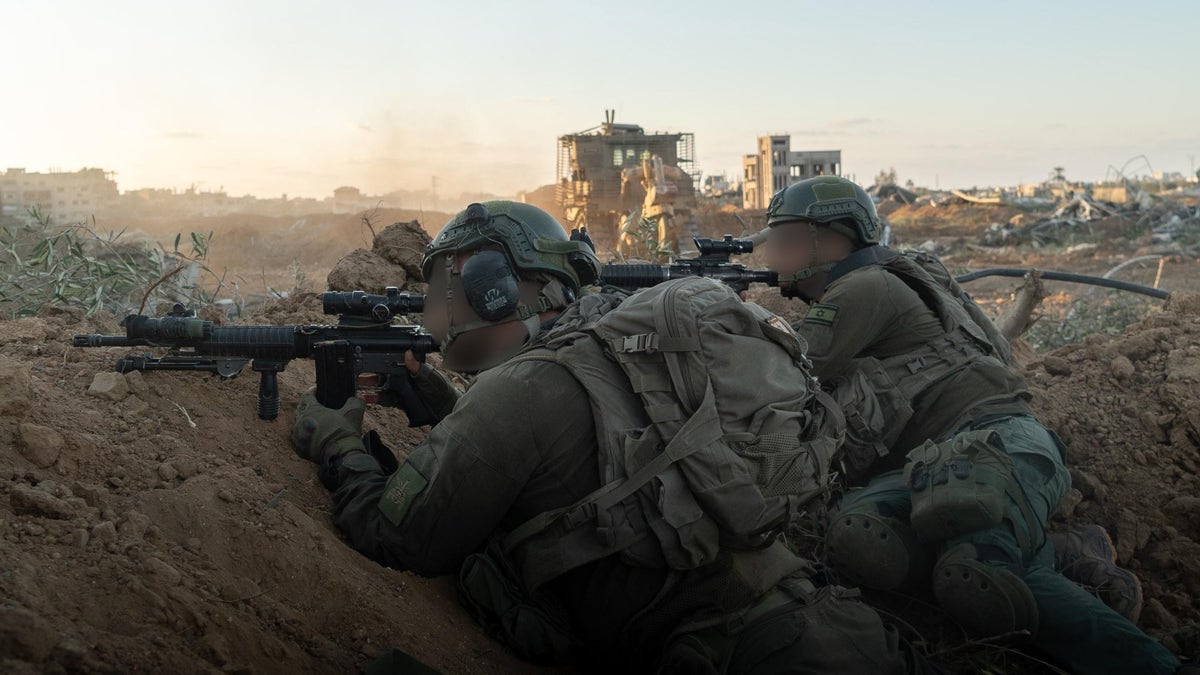
Israel Defense Forces soldiers are battling terrorists in the vital Netzarim Corridor in Gaza. (IDF Spokesman’s Unit)
He continued, “From the start of the Hezbollah attack on Israel on October 8, the United States pressed Israel to minimize its response and move to a cease-fire. After the Houthis blockaded Israel’s southern port in late October 2023, sent missiles and drones into Israeli cities and attacked Israeli and world shipping, the United States pushed Israel to defer to the United States to guarantee its interests—which it then failed to do. After missiles and drones were sent by Iraqi militias in November 2023 into Israeli cities and ports, the United States similarly urged Israeli passivity but failed to provide Israel security.”
Iran’s regime supports and funds the Houthi movment in Yemen and pro-Iran Iraqi militias.
US DEPLOYS ADDITIONAL MILITARY FORCES TO MIDDLE EAST AMID INTENSIFYING REGIONAL TENSIONS: PENTAGON
Biden and Harris have, however, imposed a restriction on Ukraine’s use of long-range missiles. Zelenskyy appealed to the White House, in a late September meeting, that Biden and Harris increase Ukraine’s leverage to defeat Russia by lifting the ban on long-range missiles that can strike Russian territory. Key Republican lawmakers also urged Biden and Harris to permit Ukraine to use the U.S. long-range missile systems.
Former U.S. Defense Intelligence Agency officer Rebekah Koffler told Fox New Digital that the “Biden-Harris Team has been trying to appease Iran by trying to micromanage Israel’s war fighting campaign, in which Israel is working to eliminate the existential threat. This incompetent approach — constantly pressuring Netanyahu to do a cease-fire, not letting him finish the job — is inviting escalation from Iran. Iran is emboldened, having witnessed that Biden-Harris don’t have Israel’s back. Iran has gotten so out of control that they’ve targeted Netanyahu’s home – think about that. The Ayatollahs clearly feel that Biden-Harris are on their side.”
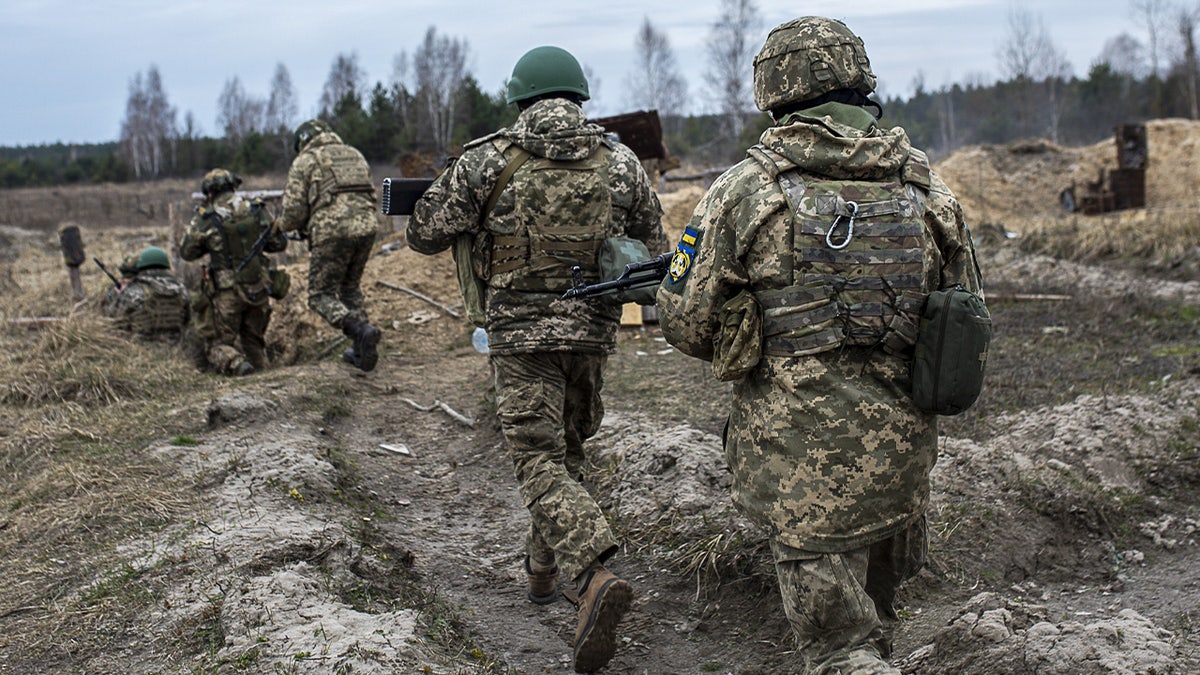
Battalion 120 Territorial Defense takes part in training exercises near the Belarus border as the war between Russia and Ukraine has been going on for the last two years in Chernobyl, Ukraine, on March 16, 2024. (Photo by Gian Marco Benedetto/Anadolu via Getty Images)
The Islamic Republic of Iran’s Supreme Leader Ali Khamenei taunted the U.S. and the Jewish state with a “tooth-breaking” response to the actions of both countries on Saturday. Iran’s regime vowed to launch a third attack on Israel in response to Israel’s Oct. 26 attack on Iran, which targeted critical military infrastructure. That attack from Israel came in response to a wave of 200-some missiles launched from Iran into Israel on Oct. 1.
The U.S. State Department referred Fox News Digital to the White House for a comment. The White House and the Harris campaign declined to respond to Fox News Digital press queries.
Fox News’ Anders Hagstrom contributed to this report.
World
What happens if there’s a tie in the US presidential election?
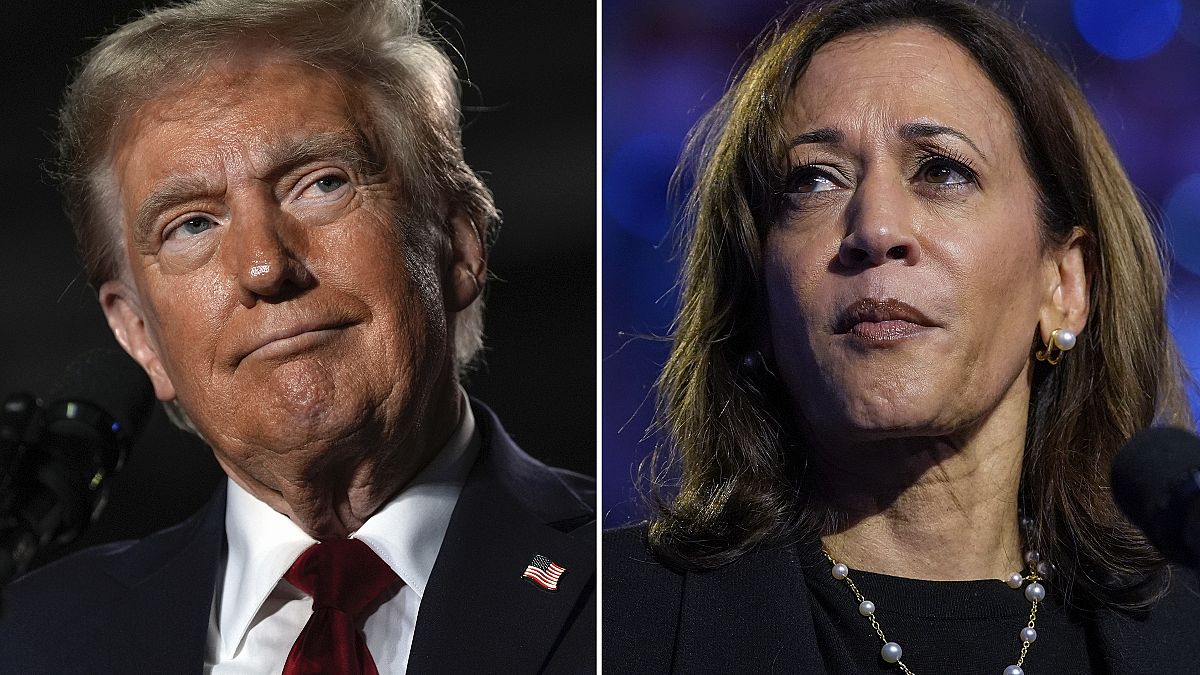
A constitutional amendment more than two centuries old determines the choice of winner in case of a draw.
Kamala Harris and Donald Trump are fighting down to the last vote to gain the upper hand in tomorrow’s election. There’s a remote possibility that the US poll could end in a draw, however.
This concerns the machinery of the US Electoral College, the winner-takes-all system that determines which presidential candidate will win the White House.
The Electoral College comprises 538 votes, distributed in varying proportions among the fifty states plus the District of Columbia. A tie between two presidential candidates is therefore theoretically possible.
Harris and Trump could each receive 269 electoral votes, resulting in a complete draw scenario, with both candidates unable to achieve the majority of electoral votes required to become president.
Similar stalemates have occurred twice in US history, in 1800 and 1824.
What happened when there was a tie in the past?
In the 1800 election, Thomas Jefferson’s Democratic-Republicans defeated the incumbent Federalist President John Adams.
At that time, presidential candidates had a “running mate” from a different state, similar to today’s candidates for vice president. The electors had to cast two votes each: the candidate with the most votes would become president, while the candidate with the second-most votes would become vice president.
However, the Democratic-Republicans did not coordinate well, resulting in their candidate for president (Jefferson) receiving the same number of votes as their candidate for vice president (Aaron Burr).
The election was therefore decided by the House of Representatives using a one-state, one-vote rule after a long deadlock that nearly resulted in a military confrontation, as Sanford Levinson, a professor at the University of Texas Law School, has noted.
For this reason, the 12th Amendment was introduced, which still regulates the election of the US president. It clarifies that electors “shall name in their ballots the person voted for as President, and in distinct ballots the person voted for as Vice President,” to avoid any possible tie between candidates from the same party.
However, there remains the possibility that no candidate receives a majority of the total number of electors appointed—currently, that crucial threshold is 270.
This actually happened in 1824, when Andrew Jackson received 99 votes, John Quincy Adams 84, William Crawford 41, and Henry Clay 37. All of these candidates were from the same Democratic-Republican political party, which was split into regional factions.
The 12th Amendment states that in such cases, the House of Representatives shall immediately choose the president by ballot from the top three choices of the electors. Votes are taken by state, with each state having one vote and a simple majority required.
This means that Wyoming, the smallest state in the US with fewer than 600,000 people, would have the same say in choosing a new president as California, which has almost 40 million residents (even though Wyoming appoints only three electors and California 54).
Additionally, the choice of the new president would depend on the composition of the House of Representatives, which is set to be voted on in parallel with the presidential elections.
How likely is a tie?
While a tie is unlikely, it is still a possibility to consider, with various scenarios outlined by the website 270toWin.
One scenario is that Trump wins Pennsylvania and Georgia, while Harris secures victories in Wisconsin, Michigan, Arizona, Nevada, and one electoral vote in Nebraska, which alongside Maine is the only state that splits its allocation of electors.
Another scenario, even more unlikely, is that Harris wins all the states Biden won, plus North Carolina, which current polls indicate could go to Republicans. If Trump then reclaims Michigan, Pennsylvania, and Wisconsin, and also wins Nevada for the first time, the outcome would be a 269-269 tie.
This would trigger a “contingent election,” with the House of Representatives tasked with deciding the US president for the first time in two centuries, requiring a simple majority of 26 states to elect the new commander-in-chief.
With the country sharply divided, newly sworn-in US congress members would face immense pressure and, in some cases, might have to choose between backing their party candidate or the one who received the most popular votes in their own state (there is no requirement for state delegations to honour the winner of their state’s vote).
This situation would likely unfold on 6 January, right after Congress determines that no candidate has a majority, according to an analysis by the Congressional Research Service.
Even more surprisingly, the tie scenario could lead to cohabitation between a Republican president and a Democratic vice president or vice versa.
Indeed, according to the 12th Amendment, in the event of no majority, the US vice president is chosen by the Senate from the two candidates with the highest number of electoral votes, with each senator entitled to one vote (the US Senate has 100 members, with each state electing two).
Finally, the Senate could select a vice president even if the House is deadlocked in the election of the president. So, if a president is not selected by Inauguration Day, 2o January, the newly chosen vice president would serve as acting president. This is a scenario that no one in the US can envision as of today.
-
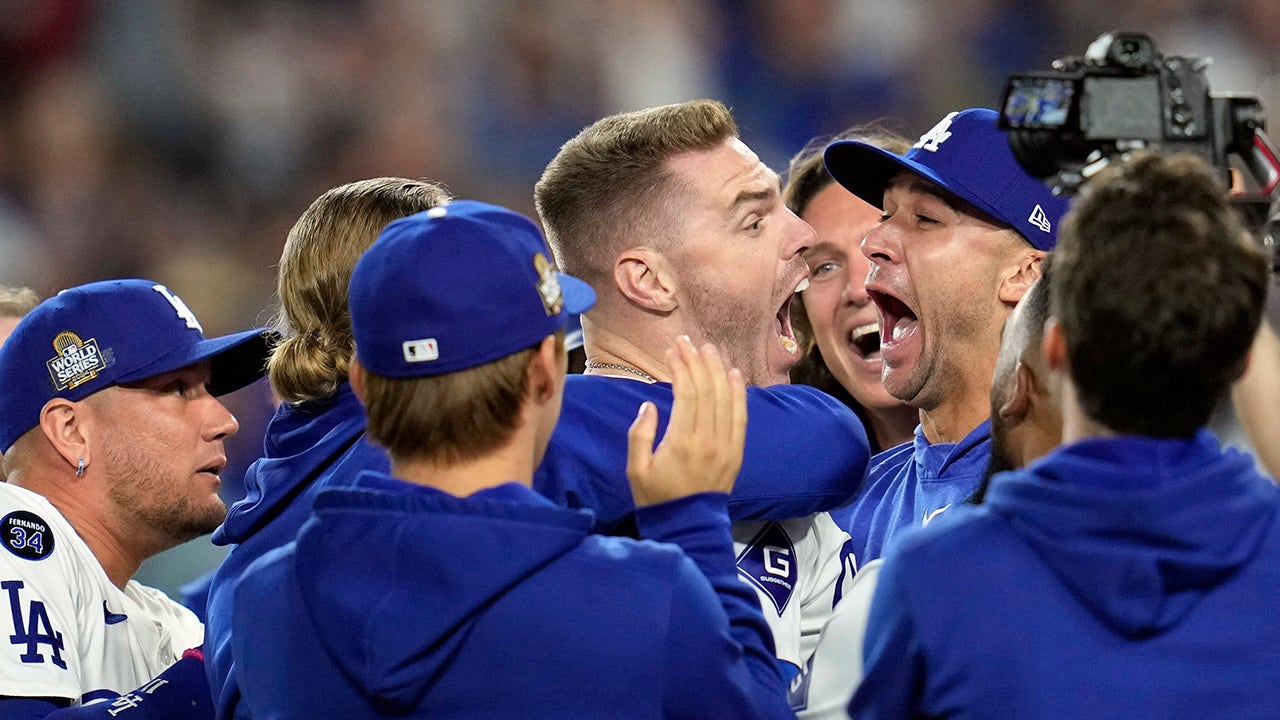
 Sports1 week ago
Sports1 week agoFreddie Freeman's walk-off grand slam gives Dodgers Game 1 World Series win vs. Yankees
-
News1 week ago
Sikh separatist, targeted once for assassination, says India still trying to kill him
-

 Culture1 week ago
Culture1 week agoFreddie Freeman wallops his way into World Series history with walk-off slam that’ll float forever
-

 Technology1 week ago
Technology1 week agoWhen a Facebook friend request turns into a hacker’s trap
-
Business3 days ago
Carol Lombardini, studio negotiator during Hollywood strikes, to step down
-

 Health4 days ago
Health4 days agoJust Walking Can Help You Lose Weight: Try These Simple Fat-Burning Tips!
-
Business2 days ago
Hall of Fame won't get Freddie Freeman's grand slam ball, but Dodgers donate World Series memorabilia
-

 Business7 days ago
Business7 days agoWill Newsom's expanded tax credit program save California's film industry?



